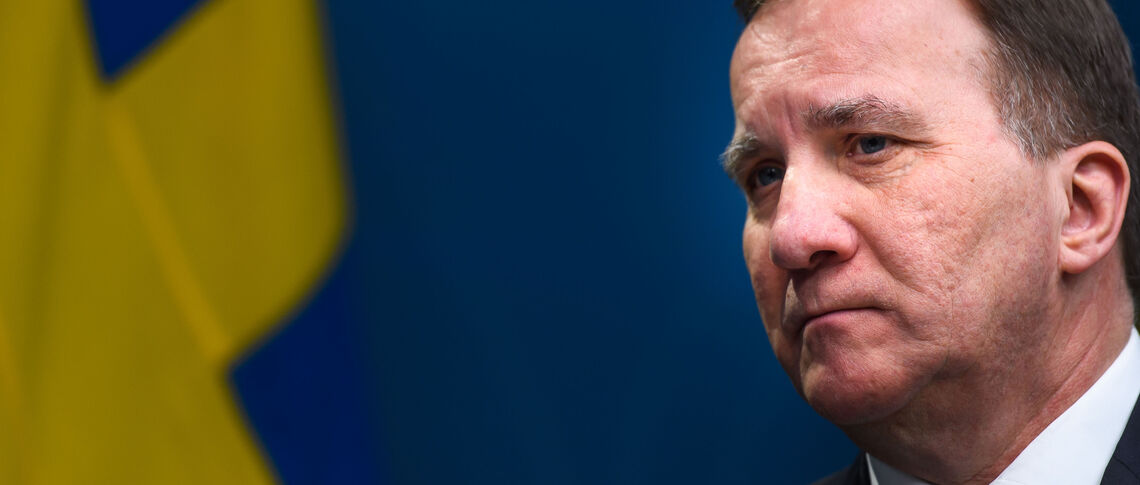Swedish Prime Minister Stefan Löfven has lost the vote of no confidence in parliament. He must now resign or call new elections. Why did the coalition government fall?
The red-green minority government fell over a factual political issue. It was about the decision whether rents for new private buildings should be liberalised - whether flats should be offered at market prices. Until now, these rents have been capped.
In contrast to other european countries such as Germany, most people in Sweden own their own homes. In fact, only about 28 per cent of Swedes live in rented flats. The political dispute therefore concerns only 0.5 per cent of the Swedish housing sector. The dispute is therefore a political issue.
Nevertheless, anyone looking for housing in Stockholm knows how difficult it is to get a reasonably affordable flat. The housing shortage is a consequence of the liberalisation and austerity policies of the last 30 years. The public sector has hardly built any socially acceptable housing and has sold off a large part of the public housing stock. This is one of the reasons why private households are highly indebted due to very high real estate costs. The pandemic has further fuelled this situation. For instance, prices for single houses have risen by more than 21 per cent in the last twelve months.
According to a recent survey, the majority of Stockholmers can now neither rent, let alone buy, a decent flat. The housing issue is one of the central issues of social justice. The opposition of the Left Party, which has a large part of its support in the progressive urban milieu, to the government's liberalisation project was therefore to be expected.
Why is the question of rents, of all things, so explosive in the left camp?
This is due to the configuration of the government so far, which has emerged solely under the pressure to minimise the direct or indirect influence of the right-wing populist Sweden Democrats on government policy. The latter were able to achieve a massive surge in votes in the 2018 election.
In 2019, in order to minimize their political influence a historic, so called 'January Agreement' was reached between the other parties. This agreement contains a detailed programme for the red-green minority government. However, in order to obtain the acquiescence of the two liberal parties - the Centre Party and the Liberal Party - the red-green alliance had to renounce the inclusion of the Left Party.
Despite the agreement, however, the government still lacked a majority and thus had to rely on the indirect support of the Left Party in the form of abstention. In this deal, the Left made it clear that the January agreement contains two red lines that they are not prepared to support: the dismantling of protection against termination of employment and the further liberalisation of rents.
While the Left Party grudgingly accepted the compromise negotiated by the social partners on the reform of employment protection, it has now reaffirmed its red line on the liberalisation of rents and voted against the government in a motion of no confidence by the Sweden Democrats. This is a political first and may yet prove to be a Pyrrhic victory: Former communists pact with a neo-Nazi party, only to avoid being used as a stepping stone for a red-green government.
Löfven and his Social Democrats have so far governed in a minority government with the Greens and with toleration from the Centre Party and the Liberals. In addition, they were dependent on the support of the Left Party. This broad alliance was intended also to contain the right-wing populists. Has this strategy failed?
Whether this strategy of containment has definitively failed remains to be seen. The January agreement, on the other hand, has failed completely. In the end, the conservatives and especially the right-wing populists are the laughing third parties. The social democrats' desire to push back the influence of the right-wing populists at all costs was acquired at a very high price. In order to get acquiescence for their minority government, the party had to make political compromises that were in direct opposition to the content for which they were elected in 2018.
It was the liberal toleration parties that pushed through their agenda. The impression was created at times that the January Agreement was degenerating into a merciless instrument of political blackmail. This course earned the Social Democrats much criticism from their own members and from the powerful trade unions closely linked to them. Surprisingly, the acquiescent parties also failed to benefit politically from the January Agreement. The Centre Party still does not cross the 10 per cent mark in polls. The Liberal Party has fallen significantly in the polls and is in danger of missing the Swedish four per cent hurdle. The conservative opposition parties, the Moderates and the Christian Democrats, however, are open to cooperation with the Sweden Democrats. The only neo-Nazi party in the Riksdag has thus finally become hopeful and is blatantly spreading its revanchist agenda. That is why it is so astonishing that a declared anti-fascist party like the Left Party has undertaken the overthrow of the government for strictly power-political reasons. It is as if the Left Party had opened the gate and let the wolves to the sheep.
What happens next - new elections or resignation?
After the vote of no confidence, Prime Minister Löfven now has a week to either call new elections or forge a new majority alliance in the existing parliament. It seems, however, that new elections will be held next September, because the Liberal Party, for its part, has already cancelled the January agreement. The Centre Party is also sticking to its hard line of excluding the Left Party.
Due to a Swedish constitutional peculiarity, early new elections do not replace the proper expiration of a legislative period. Sweden thus faces a permanent election campaign, because even in the case of new elections, the country must properly vote again as early as September 2022. The election campaign promises to be very tough. For although the right-wing populists could not directly influence government policy, they determined the political discourse on issues of social and immigration policy. Even without direct influence, they determine the topics of Swedish politics and are increasingly shaping the country's debate culture, which has become very rough by Swedish standards.
This interview was conducted by Claudia Detsch.






